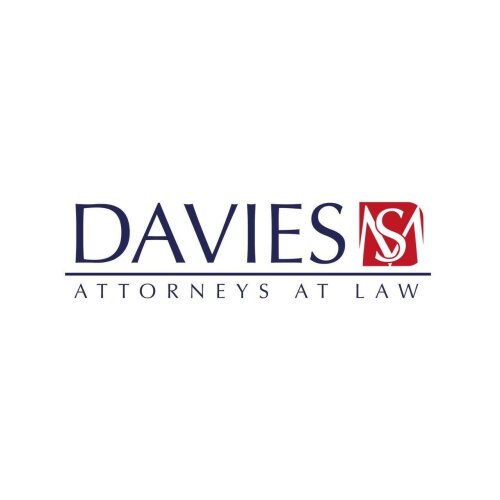Best Sexual Harassment Lawyers in Cambodia
Share your needs with us, get contacted by law firms.
Free. Takes 2 min.
Or refine your search by selecting a city:
List of the best lawyers in Cambodia
About Sexual Harassment Law in Cambodia
Sexual harassment in Cambodia is increasingly recognized as a serious social issue. Cambodian law stipulates protection against sexual harassment in several contexts, including workplace settings. The country's labor laws and penal code provide mechanisms to report and address sexual harassment, reflecting a growing awareness and commitment to curtail such offenses. The Ministry of Women’s Affairs and other bodies are active in implementing and updating policies to further combat sexual harassment and promote safer environments for all citizens.
Why You May Need a Lawyer
Legal assistance may be crucial in navigating the complexities of sexual harassment claims in several scenarios. If you're a victim seeking justice, a lawyer can help you understand your rights and the legal options available. Businesses may also require legal guidance to ensure compliance with harassment laws and to address claims appropriately. Moreover, in cases involving power imbalances or when faced with institutional hurdles, professional legal support can be vital in ensuring a fair and just process.
Local Laws Overview
The Cambodian Labor Law provides for the protection against sexual harassment in employment settings, making it illegal for employers to tolerate harassment in the workplace. The Penal Code also criminalizes acts of sexual violence, and provisions related to defamation and threats can be applicable in harassment cases. Furthermore, governmental policies support victims through various state and non-governmental organizations by providing resources and support systems dedicated to addressing issues of sexual harassment. Understanding these laws is essential for victims seeking justice or employers seeking to maintain compliant workplaces.
Frequently Asked Questions
What constitutes sexual harassment under Cambodian law?
Sexual harassment in Cambodia is any unwanted conduct of a sexual nature that violates someone's dignity or creates an intimidating, hostile, degrading, humiliating, or offensive environment.
Can men be victims of sexual harassment in Cambodia?
Yes, men can also be victims of sexual harassment, and the law provides protections regardless of gender.
What should I do if I experience sexual harassment at work?
If you experience harassment, document the incidents, report them to your employer's human resources or a supervisor, and seek legal guidance if necessary.
Are there protections for sexual harassment victims in educational institutions?
Yes, educational institutions are also bound by policies that prohibit sexual harassment, and victims can report incidents to school authorities or legal bodies.
What government bodies handle sexual harassment cases in Cambodia?
The Ministry of Women’s Affairs, the Ministry of Labor and Vocational Training, and relevant legal authorities are involved in handling such cases.
Is there a statute of limitations for filing a sexual harassment claim?
Legal time limits can vary, so it is crucial to seek legal advice immediately to ensure timely action is taken.
Can I pursue a case if the harassment happened outside of work?
Yes, the Penal Code covers sexual harassment beyond the workplace, allowing you to pursue legal actions in personal and public environments.
What role do NGOs play in combatting sexual harassment?
NGOs provide support, advocacy, and resources for victims, and often engage in awareness-raising and training to prevent harassment.
How can employers prevent sexual harassment in the workplace?
Employers must create a clear anti-harassment policy, offer staff training, establish reporting procedures, and take immediate action on complaints to prevent harassment.
What happens if an employer ignores a sexual harassment complaint?
Should an employer ignore a complaint, it could be escalated legally, potentially leading to penalties under labor law and the victim may seek legal redress.
Additional Resources
For further assistance, individuals can reach out to the following resources: the Ministry of Women’s Affairs for support in victim protection, the Cambodian Human Rights and Development Association (ADHOC) for legal aid and advice, and the Cambodian League for the Promotion and Defense of Human Rights (LICADHO) for advocacy and support. These organizations provide valuable guidance and resources for those affected by sexual harassment.
Next Steps
If you are experiencing sexual harassment, it is essential to take proactive steps. Document all incidents thoroughly, reach out to trusted contacts for support, and report the situation to the relevant authorities. Seeking the expertise of a qualified lawyer can guide you through the complexities of the legal process and help protect your rights. Consider contacting legal aid organizations if affordability is a concern. The first step to resolving any issue is to speak out and seek the assistance you need to navigate the situation effectively.
Lawzana helps you find the best lawyers and law firms in Cambodia through a curated and pre-screened list of qualified legal professionals. Our platform offers rankings and detailed profiles of attorneys and law firms, allowing you to compare based on practice areas, including Sexual Harassment, experience, and client feedback.
Each profile includes a description of the firm's areas of practice, client reviews, team members and partners, year of establishment, spoken languages, office locations, contact information, social media presence, and any published articles or resources. Most firms on our platform speak English and are experienced in both local and international legal matters.
Get a quote from top-rated law firms in Cambodia — quickly, securely, and without unnecessary hassle.
Disclaimer:
The information provided on this page is for general informational purposes only and does not constitute legal advice. While we strive to ensure the accuracy and relevance of the content, legal information may change over time, and interpretations of the law can vary. You should always consult with a qualified legal professional for advice specific to your situation.
We disclaim all liability for actions taken or not taken based on the content of this page. If you believe any information is incorrect or outdated, please contact us, and we will review and update it where appropriate.
Browse sexual harassment law firms by city in Cambodia
Refine your search by selecting a city.








